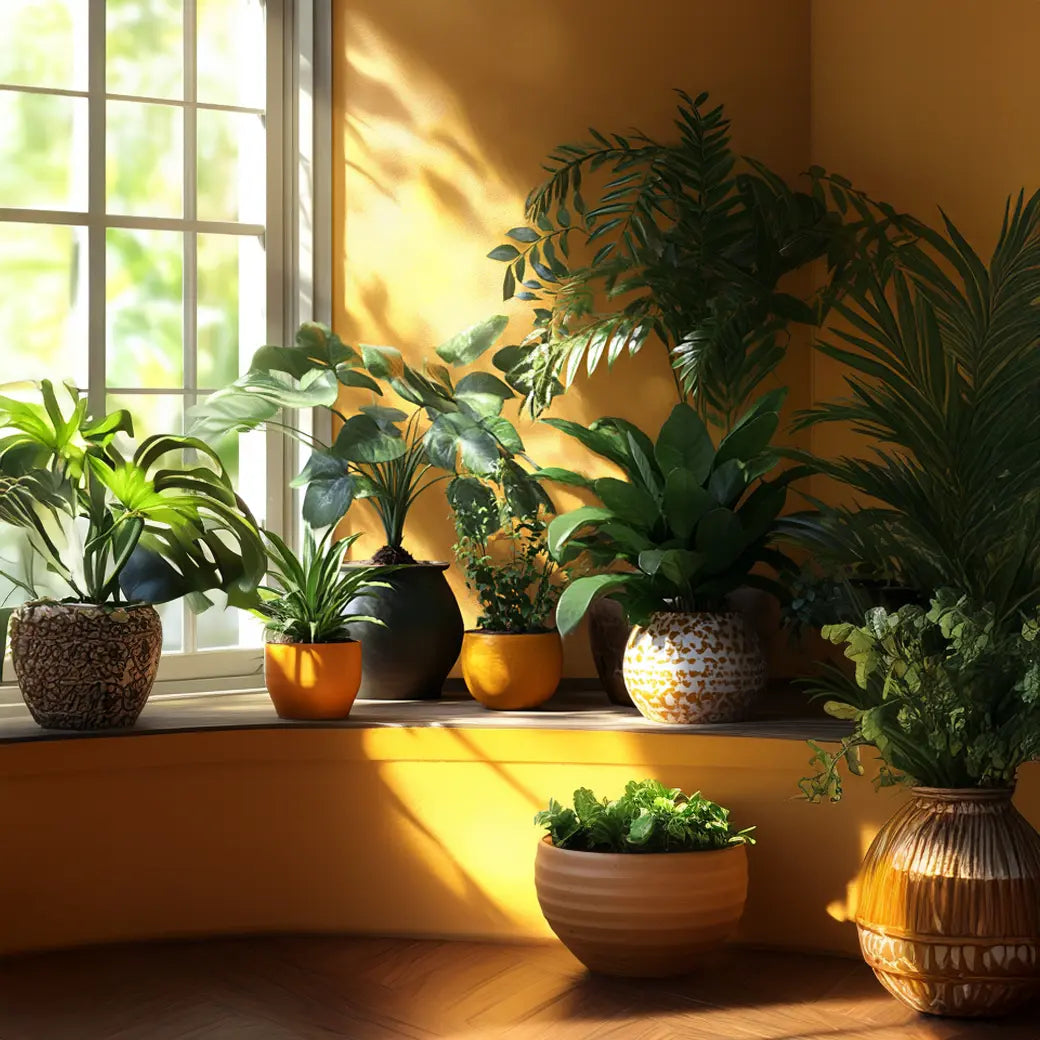Houseplants bring life and atmosphere into your home, but to truly thrive they need more than light and water — they need consistent, balanced nutrition. Just like people rely on a healthy diet, houseplants depend on regular feeding to grow strong, vibrant, and resilient.
Organic liquid fertilisers work like daily vitamins for your plants: they deliver readily available nutrients that support root development, lush foliage, and steady, controlled growth throughout the year.
Below are essential tips to ensure your houseplants receive the nourishment they need — season after season.
1. Choose the Right Liquid Organic Fertiliser
Not all fertilisers are created equal. GARDEN GOLD – Houseplant Formula is a balanced, all-purpose fertiliser suitable for a wide range of houseplants, including tropical plants, succulents, and cacti.
To further support plant vitality and micronutrient uptake, a bi-weekly application of Sea-Prime Formula is recommended. Seaweed extract and amino acids help plants cope with stress and improve overall resilience.
2. Dilute According to Instructions
Organic liquid fertilisers are concentrated and must be diluted correctly. Over-fertilising can cause nutrient imbalances or root damage. When in doubt, start with a lower concentration and gradually increase if needed.
3. Feed During the Growing Season
Houseplants grow actively during spring and summer and require more nutrients during this period. This is the ideal time to feed regularly. In autumn and winter, growth slows down and fertilising frequency should be reduced or paused altogether.
4. Water Your Plants Before Feeding
Always water your plants before applying liquid fertiliser. Applying nutrients to dry soil can cause root burn and uneven uptake. Moist soil ensures nutrients are absorbed efficiently and evenly.
To further improve water retention and nutrient availability, we recommend adding generous amounts of organic, peat-free compost to your houseplant soil.
You can read more about incorporating both compost and GARDEN GOLD liquid organic fertilisers into your plant care routine.
5. Apply Fertiliser Evenly
Distribute the fertiliser evenly across the entire soil surface. For smaller pots, apply carefully to avoid waterlogging or nutrient buildup.
6. Feed in Moderation
With organic fertilisers, less is often more. Feeding once every one to two weeks during the growing season is usually sufficient. Excessive feeding may lead to salt accumulation and stress symptoms.
7. Monitor Plant Health
Observe your plants regularly. Yellowing leaves or slow growth may indicate nutrient deficiency, while brown leaf tips or wilting can signal overfeeding. Adjust your feeding schedule accordingly.
8. Consider Soil pH
Most houseplants prefer slightly acidic to neutral soil (pH 5.6–7). If the soil becomes too alkaline, fertilisers containing seaweed extract — such as Sea-Prime Formula — can help improve nutrient availability.
9. Feed Smarter with a Complete Houseplant Feeding System
Consistent nutrition works best when fertilisers are applied as part of a structured approach. That’s why GARDEN GOLD developed a complete feeding system for indoor plants.
- Houseplant Feeding Program – combines balanced soil nutrition with targeted plant support for healthy, resilient houseplants
This integrated approach is exactly how Houseplant Formula and Sea-Prime are used within the GARDEN GOLD Feeding Programs, delivering reliable results without guesswork.
10. Clean Your Watering Equipment Regularly
Clean watering cans and sprayers after each use to prevent residue buildup. All GARDEN GOLD products are filtered to 50 microns, making them safe for any spraying system — but clean tools ensure precise dosing every time.
Final Thoughts
Organic liquid fertilisers provide an effective, plant-friendly way to nourish houseplants year-round. With the right products, proper timing, and a consistent feeding strategy, your houseplants will remain healthy, vibrant, and beautiful for years to come.

Leave a comment
All comments are moderated before being published.
This site is protected by hCaptcha and the hCaptcha Privacy Policy and Terms of Service apply.